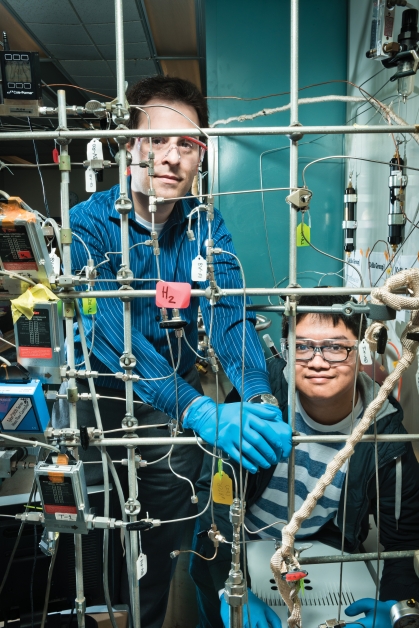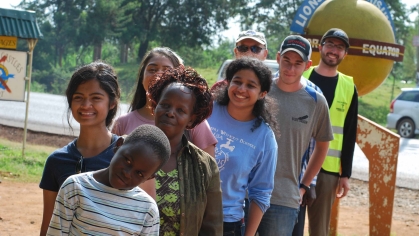Undergraduates are Getting Published

Daryll Munoz and Prof. Fuat Celik: Catalysts for Producing Hydrogen Gas
If it’s becoming more commonplace for undergraduates to publish journal articles about their research, Daryll Munoz still breathes rare air. Munoz, who recently graduated with a degree in chemical and biochemical engineering, already has his name on two papers in prestigious chemistry journals, based on work he began as a rising sophomore enrolled in the Aresty Summer Science Program.
Munoz’s mentor, assistant professor Fuat Celik, credits his student’s achievement to a combination of developing his skills during two-and-a-half years in the lab and receiving additional guidance from graduate student Ashley Pennington. He also got some good breaks.
“Uniquely for him, he ended up working on two projects that wrapped up while he was a student; on both, his contributions were significant enough to rate co-authorship,” Celik says.
Munoz’s research centered on investigating catalysts for producing hydrogen gas to use as an emissions-free source of energy for vehicles. “The fact that Dr. Celik and Ashley thought my work was so robust that I could be part of the publication was awesome,” Munoz says. “Not many of my friends who are doing research get the same opportunity to be recognized for the work they did.”
The first project was published in the American Chemical Society’s Journal of Physical Chemistry C and the second in Elsevier’s International Journal of Hydrogen Energy.
Celik had conducted doctoral work at the University of California, Berkeley, where he mentored six undergraduates. “I gained an appreciation for how much an undergraduate student who is motivated can contribute to a research project,” he says. “That’s the experience I wanted to recreate in my lab at Rutgers.”
When students graduate, publication experience helps them stand out. “Being a coauthor indicates that they have the ability to multitask,” he says. “Most people who are hiring know how difficult it is to publish a paper. If students have managed that as undergraduates, it’s a real plus for their applications.”


